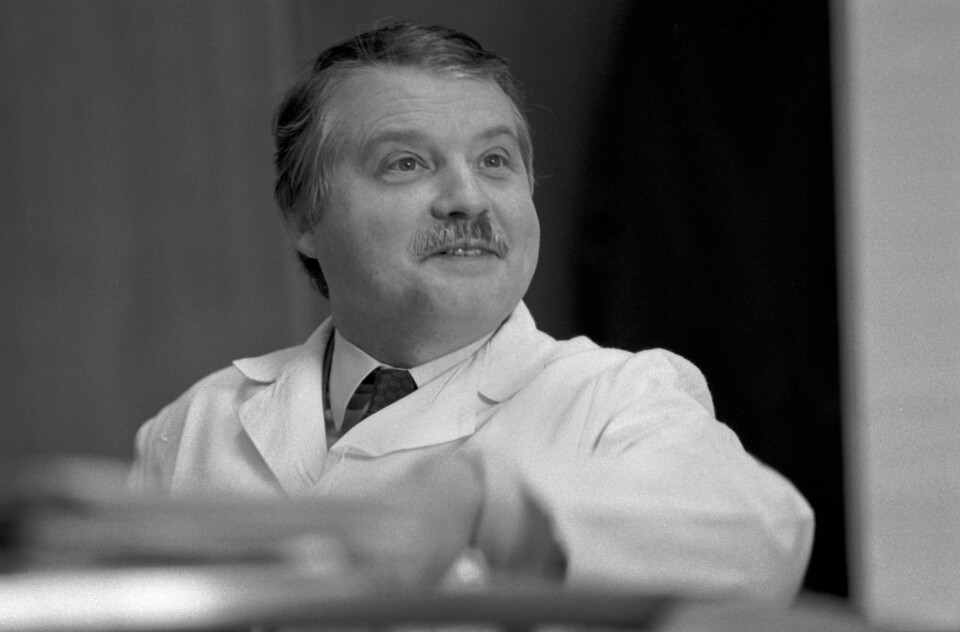-
How many Americans live in Paris - and where else are they choosing in France?
Over a quarter of all US nationals in France live in the capital city
-
Price rises for Netflix in France
The Standard (with ads) and Premium packages are increasing by €24 a year
-
Leclerc supermarkets to sell car fuel at cost price for Easter
The initiative will apply to diesel, petrol, and LPG
Divisive French virologist and Nobel Prize winner dies aged 89
Professor Luc Montagnier is known for his part in discovering HIV, but has also been denounced for supporting unscientific theories and for opposing certain vaccines

The divisive French virologist Luc Montagnier, who won a Nobel Prize in 2008 but has also been heavily criticised by his peers for propagating unproven and ‘dangerous’ theories, has died at the age of 89.
He died on Tuesday (February 8) at a hospital in Neuilly-sur-Seine (Hauts-de-Seine), just west of Paris, the local mairie confirmed yesterday.
Prof Montagnier was awarded the 2008 Nobel Prize in Physiology or Medicine for his part in discovering HIV, the virus that can lead to AIDS, in 1983.
However, since the beginning of the 2000s he has been subject to criticism for sharing and supporting unscientific and unproven theories.
For example, in a 2009 American documentary he defended the idea that a strong immune system can lead to someone being cured of HIV in a few weeks.
He also proposed to cure Pope John Paul II of Parkinson's disease using an extract of fermented papaya.
Last year, he claimed in an interview with CNews that the Covid outbreak was caused by “molecular biologists” inserting DNA sequences from HIV into a coronavirus, “probably” as part of their work to find a vaccine against AIDS”.
The study he based his claims on was not peer-reviewed, was heavily criticised by the scientific community, and was later taken down.
He has also been outspoken in his opposition to vaccines, both before and during the coronavirus pandemic.
Read more:French Nobel prize winner: ‘Covid-19 was made in lab’
In 2017, around a hundred members of the French science and medicine academies criticised his views on the supposed risk of vaccines.
"We, academicians of science and/or academicians of medicine, cannot accept from one of our colleagues that he uses his Nobel Prize to disseminate, outside the field of his competence, dangerous messages relating to health, in defiance of the ethics that must preside over science and medicine," they wrote, as reported at the time by Ouest France.
A great loss
Despite the controversies, Mr Montagnier is still widely recognised for his contribution to discovering HIV.
France’s minister of higher education, research and innovation, Frédérique Vidal, tweeted yesterday (February 10):
“With the death of Luc Montagnier, France has lost an immense researcher, winner of the Nobel Prize in Medicine in 2008, co-discoverer of [HIV] with Françoise Barré-Sinoussi.
“We know what we collectively owe to his scientific work,” she wrote.
Avec le décès de Luc Montagnier, la France perd un immense chercheur, prix Nobel de médecine en 2008, co-découvreur du virus du sida avec Françoise Barré-Sinoussi.
— Frédérique Vidal (@VidalFrederique) February 10, 2022
Nous savons ce que nous devons collectivement à ses travaux scientifiques.
The dispute around who discovered HIV
Prof Montagnier was director of the Viral Oncology Unit at the Pasteur Institute in the early 1980s.
He is credited with discovering the human immunodeficiency virus (HIV) alongside another member of his team, Dr Françoise Barré-Sinoussi, who jointly received the 2008 Nobel Prize. Before their discovery, the cause of AIDS was not known.
Willy Rozenbaum, a clinician at the Hôpital Bichat in Paris, asked Prof Montagnier’s team in 1982 to examine a patient suffering from a mysterious syndrome. From the samples, they discovered HIV.
They published their work in the journal Science in 1983.
However, US scientist Robert Gallo published similar findings in the same issue of the journal.
This led to a public dispute between Prof Montagnier and Dr Gallo about who first discovered HIV and the cause of AIDS.
Dr Gallo eventually admitted in 1991 that he had used the same patient samples from the Pasteur Institute but at a later date than Prof Montagnier and his team.
In 2002, the two men eventually agreed that while Prof Montagnier and his team had discovered HIV, it was Dr Gallo who had first linked it to causing AIDS.
Related articles
French Nobel prize winner: ‘Covid-19 was made in lab’
























